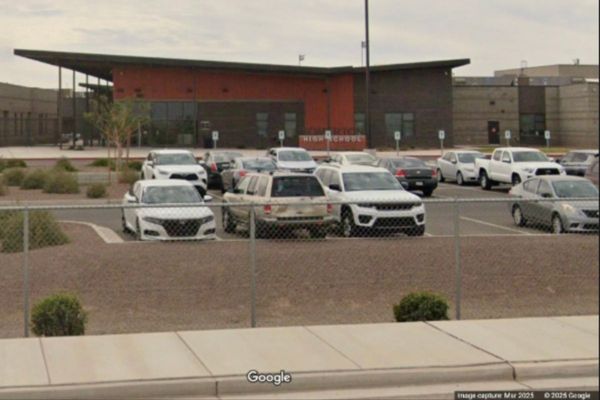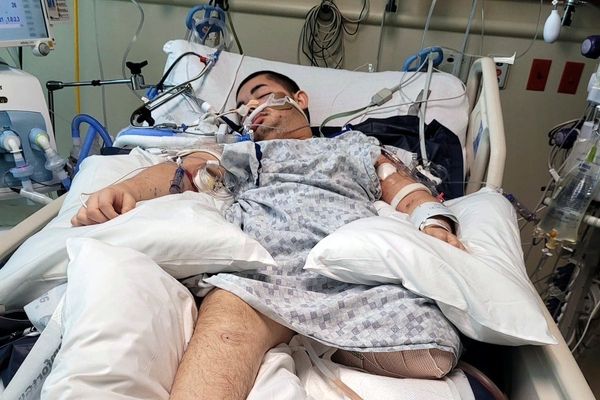
United Nations Secretary-General Antonio Guterres has spoken out about the dire humanitarian situation unfolding in the besieged Gaza Strip, saying “civilians are in an endless death loop” amid renewed Israeli bombardments and a ban on the entry of much-needed aid.
Speaking to reporters on Tuesday, Guterres rejected a new Israeli proposal to control aid deliveries in Gaza, saying it risks “further controlling and callously limiting aid down to the last calorie and grain of flour”.
“Let me be clear: We will not participate in any arrangement that does not fully respect the humanitarian principles: humanity, impartiality, independence and neutrality,” Guterres said.
No aid has been delivered to the enclave of 2.3 million people since March 2 as Israel continues to seal vital border crossings, barring the entry of everything from food to medical supplies and fuel.
“More than an entire month has passed without a drop of aid into Gaza. No food. No fuel. No medicine. No commercial supplies,” Guterres said in New York.
“As aid has dried up, the floodgates of horror have reopened. Gaza is a killing field – and civilians are in an endless death loop,” he added.
COGAT, an Israeli military unit responsible for civilian matters in occupied Palestinian territory, last week met with UN agencies and international aid groups and said it proposed “a structured monitoring and aid entry mechanism” for Gaza, after it claimed that aid was being diverted away from civilians by Hamas.
Jonathan Whittall, the senior UN aid official for Gaza and the West Bank, said last week that there was no evidence of aid being diverted.
Israel last month resumed its bombardment of Gaza, ending a fragile two-month truce. It also sent troops back into the enclave and has been trying to seize territory, including parts of Rafah in Gaza’s south.
“Meanwhile, at the crossing points, food, medicine and shelter supplies are piling up, and vital equipment is stuck,” Guterres said.
‘Unequivocal obligations’
Al Jazeera’s Gabriel Elizondo, reporting from UN headquarters in New York, said it is the first time Guterres has used such strong language in remarks about Gaza, signalling that he is getting “exasperated by how bad the situation has become there”.
“He laid out very specific ways in which Israel is violating international law.”
Guterres concluded his remarks by once again calling for a permanent ceasefire, full humanitarian access in Gaza and the release of Israeli captives held in Gaza.
“With crossing points into Gaza shut and aid blockaded, security is in shambles and our capacity to deliver has been strangled,” he said.
“As the occupying power, Israel has unequivocal obligations under international law, including international humanitarian law and international human rights law,” Guterres said.
That means Israel should facilitate relief programmes and ensure food, medical care, hygiene and public health standards in Gaza, he said. “None of that is happening today,” he added.
Meanwhile, French President Emmanuel Macron visited the Egyptian city of El Arish, a key transit point for Gaza-bound aid, to call on Israel to lift its blockade of aid deliveries.
Alongside his Egyptian host, President Abdel Fattah el-Sisi, Macron toured a hospital in the port city 50km (30 miles) west of the Gaza Strip and met with medical professionals and sick and wounded Palestinians evacuated from Gaza.
Carrying a bouquet of red roses to give to patients, the French president visited several wards as well as a play area for children.
His office said the trip was aimed at putting pressure on Israel for “the reopening of crossing points for the delivery of humanitarian goods into Gaza”.
Emergency department doctor Mahmud Mohammad Elshaer said the hospital had treated about 1,200 Palestinian patients since Israel’s assault on Gaza began in October 2023.
“Some days we can receive 100 patients, others 50,” Elshaer said, adding that many had sustained amputations or eye or brain injuries.
In Cairo, Macron, el-Sisi and Jordan’s King Abdullah II called for an “immediate return” to the ceasefire.
The three leaders met on Monday to discuss the war and humanitarian efforts to alleviate the suffering of Palestinians in Gaza, the vast majority of whom have been displaced at least once during the war.
More than 50,000 Palestinians have been killed in Israel’s genocide in Gaza. Buildings and infrastructure on large swaths of land have been destroyed, and the healthcare system has collapsed.







